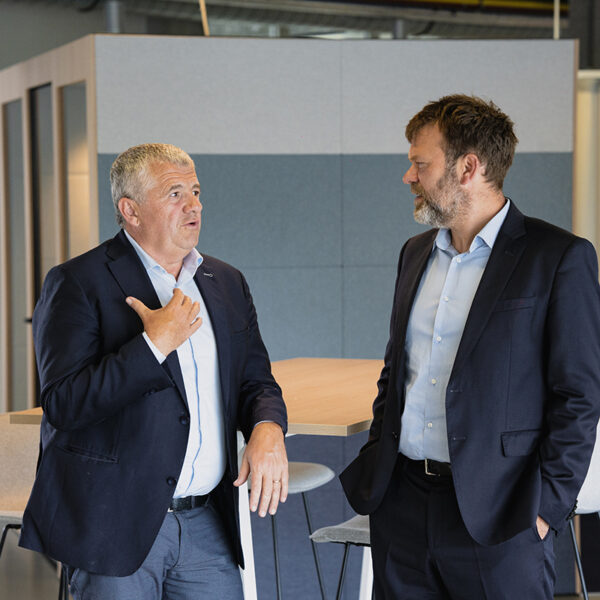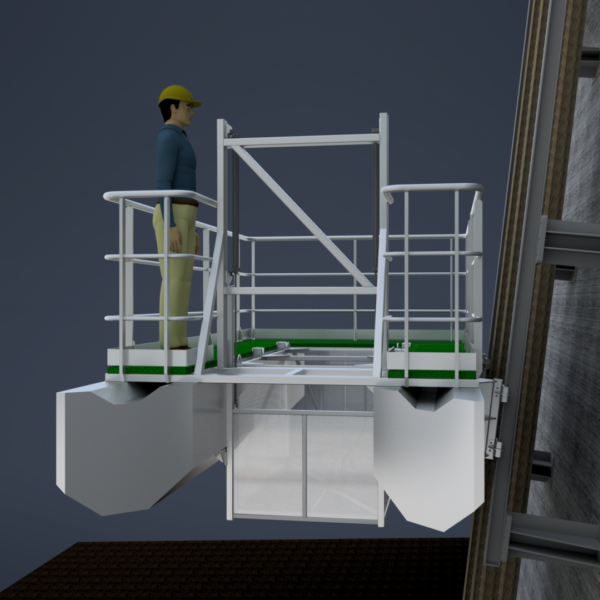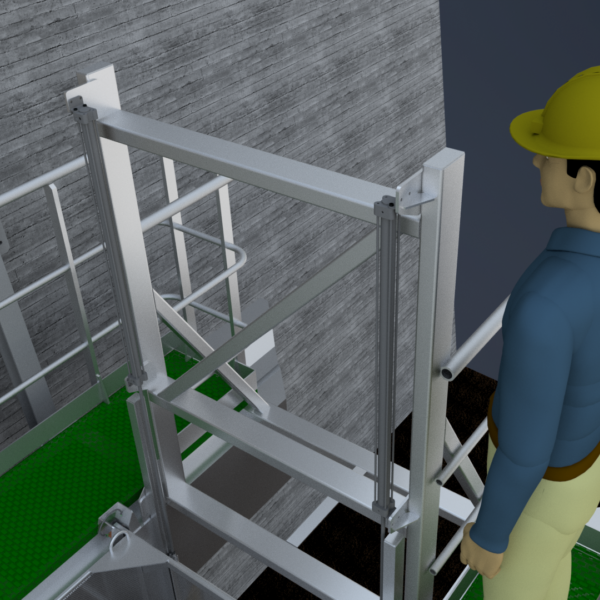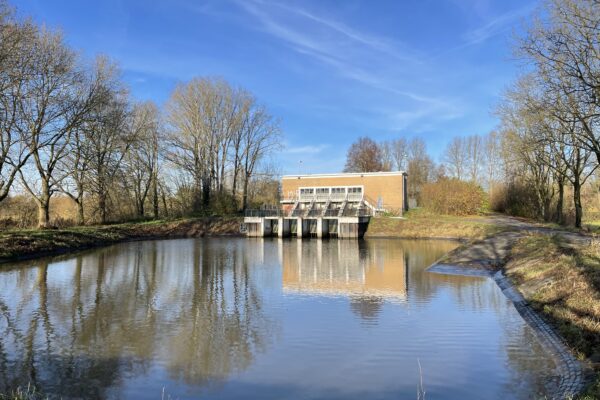De Blauwe Cluster - from innovation policy to economic impact
De Blauwe Cluster is a business network that supports the development of economic activities at sea. The organization is increasingly becoming a driving force in the export of Flemish maritime innovations. We discussed strategy and the future with CEO Piet Opstaele, and with our own Maritime & Offshore CEO, Niko Fierens, who is closely involved in the operations of De Blauwe Cluster. He serves on the Board of Directors, representing the organization's over one hundred SME members.
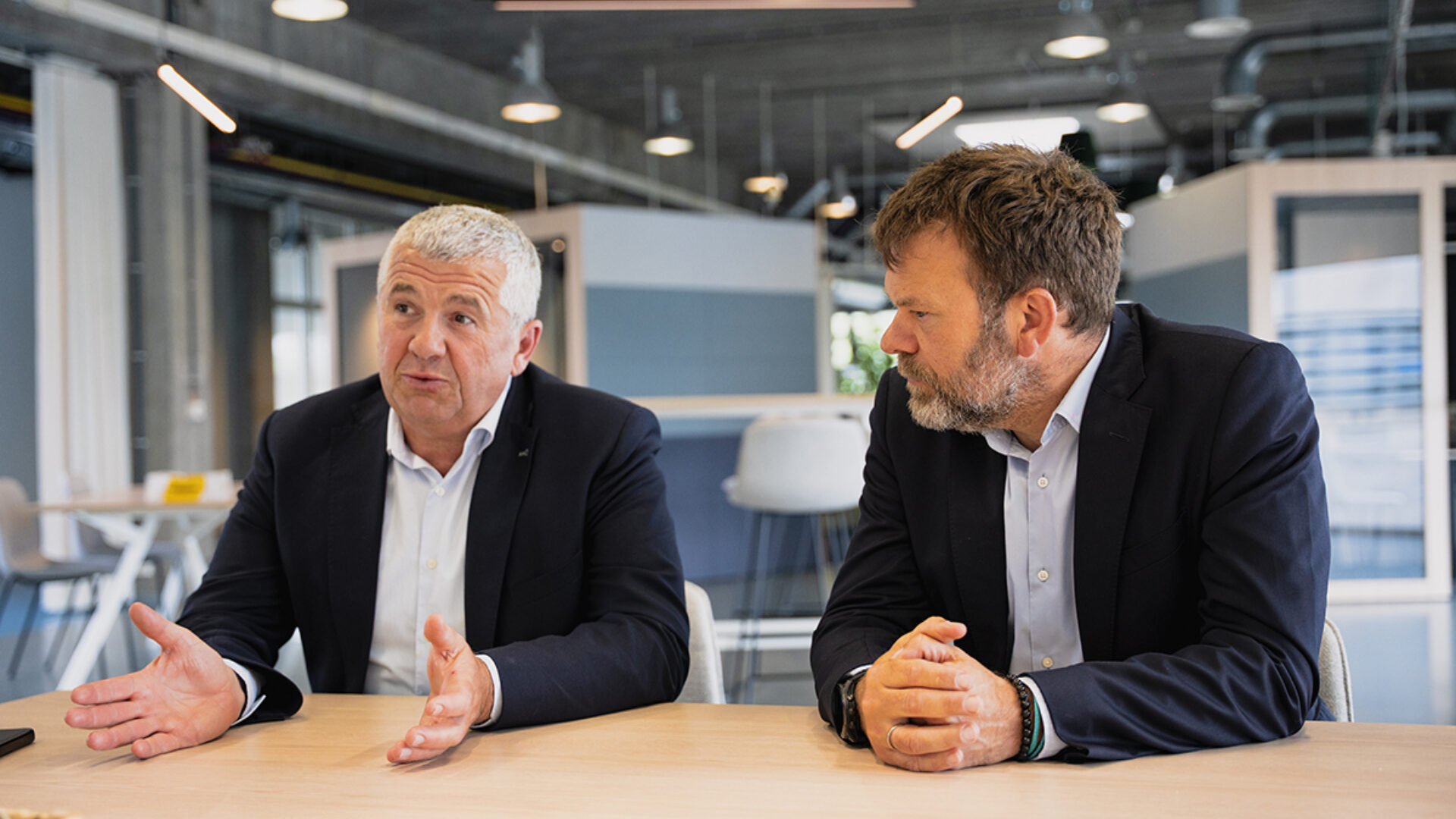
Driving sustainable maritime innovation
Within a network of 180 companies and research institutions, De Blauwe Cluster forges strong partnerships to accelerate innovation in the blue economy. The organisation focuses on five strategic domains:
- Offshore renewable energy, in which Belgium is a recognised international leader;
- Maritime security for vessels and critical infrastructure against attacks and sabotage;
- Sustainable coastal management;
- Sustainable seafood and marine biotechnology, such as applications of seaweed in the medical sector;
- Decarbonisation and automation of shipping.
Since its establishment, De Blauwe Cluster has built a solid European and international network, facilitating and funding around one hundred innovation projects worth more than €100 million.
Piet Opstaele emphasises the organisation’s unique role: “We have the opportunity to develop a new offshore economy that reconciles nature and industry. The innovations of our companies can create economic value while strengthening biodiversity in the North Sea.”
From R&D to return on investment
R&D projects within De Blauwe Cluster receive government support but also require substantial contributions from participating companies in terms of budget, time, and expertise. These remain investments with uncertain returns. Niko Fierens: “The greatest challenge is not coming up with innovative ideas, but the next step: further development and commercialisation. Research and development must eventually yield returns—not only for the companies investing in them, but also for the government, which expects impact in terms of jobs and economic growth.”
According to Piet Opstaele: “Everyone is now convinced that innovation is vital for a small country to remain competitive in a global market where product cycles are increasingly shorter and digitalisation accelerates everything. Flanders has few large industrial players but does have a strong manufacturing sector, outstanding research institutions, and highly trained engineers who can drive innovation. The challenge now is to position these innovations successfully on the international market.”
Supporting innovation and market entry
That is why De Blauwe Cluster is expanding its role to include support for commercialisation. Piet Opstaele: “We don’t just help companies start R&D projects; we also guide them through the valorisation process. How should they approach it? What is a smart go-to-market strategy? Where is the strongest market potential? We share market insights, lobby policymakers to remove barriers, and think about how innovations can generate economic value.”
Both Piet and Niko see a welcome shift towards more entrepreneurship among start-ups and research institutions, but believe much remains to be done. Niko: “Flanders invests relatively heavily in the early stages of innovation—from idea to research. But for the subsequent phases—development, testing, scaling, and commercialisation—the available tools are still limited. Yet our companies take significant risks in these stages as well. A frequently cited reason for this caution is Europe’s wish to avoid unfair competition between member states. However, the lack of support makes it difficult for Flemish companies, especially smaller ones, to compete, even though they are world leaders in dredging and ship technology, and offshore renewable energy. Competing against state-backed players from, for example, China, or against American companies with more capital, a higher risk appetite, and greater economic freedom, is no easy task.”
From the North Sea to international waters
Because the local market is limited—the Belgian North Sea is nearly fully developed—commercialisation at home often fails to generate sufficient value. Niko: “Flemish companies must be able to scale their solutions across Europe or globally. This is a major step, especially for SMEs. Both the government and De Blauwe Cluster can do more to make internationalisation feasible by reducing the associated risks.”
Continuing to build the future of offshore energy
De Blauwe Cluster—and the blue economy in general—has a strong focus on energy transition and sustainability. While offshore wind projects in the US are currently being postponed or cancelled, Piet Opstaele believes it is more important than ever to keep investing in sustainable technologies.
“We must continue developing and collaborating to achieve sufficient scale to remain competitive internationally in the future. The demand for sustainable offshore energy will resurge. Offshore is one of the cheapest forms of energy production. Moreover, Europe understands the importance of securing its own energy supply. Investments in innovation are essential. MULTI.engineering is already doing this today, for example, with the development of the Moray Base, a floating wind turbine foundation.”
Niko agrees: “Piet is right—the demand for sustainable energy will come back. China, for example, is forging ahead, expanding its lead. But we must not ignore the impact of the current downturn, which creates uncertainty and slows project development. That is precisely why it is so important to give extra support to companies investing in new technologies.”
Synergy between industry and research institutions
According to Piet Opstaele, MULTI.engineering is undoubtedly a core member of De Blauwe Cluster: “They are not only closely involved in our activities but also play an active role in many innovation projects.”
Niko Fierens confirms: “My colleague Jef Monballieu sits on the steering committee that directs and monitors cluster projects. In recent years, we have been involved in projects across four of the five domains in which The Blue Cluster operates. As an engineering firm, we rarely take the lead, but we are a strong partner to have on board. We also play our role in several industrial advisory boards. These bodies support research projects by research institutions with practical input from industry, to translate as much research as possible into concrete, commercial applications.”
The Blue Cluster actively promotes collaboration between companies and research institutions—a synergy that often produces strong, innovative results.
I3FLOAT
Niko: “Recently, MULTI.engineering became one of the partners in our largest European grant project to date. The I3FLOAT project unites the strengths of various cluster organisations to strengthen Europe’s floating wind industry. The project involves research, development, and coaching. Alongside MULTI.engineering, 24SEA is also involved, as well as the French research centre Océanide, the Belgian-Portuguese company HAEDES, and our Slovak colleagues, who will take on part of the project scope.”
Strategy for the future
In the future, De Blauwe Cluster aims to focus even more on domains in which Flanders excels internationally, such as nature-based solutions, maritime security, and smart shipping. From there, targeted projects can emerge.
Piet Opstaele: “European cooperation can also be strengthened further. At the same time, the Board of Directors is looking at how to secure the resources needed for continued growth. Government support will remain essential—not only to stimulate innovation but also to ensure a level playing field where SMEs have the same opportunities as large companies.”
Some examples include:
TREASURE, DEMARC, and PLUXIN*: development of technologies to remove plastics from the water.
INTENSSE-H2: research into the potential of producing hydrogen from seawater using an innovative concept that integrates water treatment and electrolysis.
OPAL & SMARAGD: projects focused on the development of autonomous and safe shipping for the maintenance of offshore wind farms.
EcoGBF: research and development of a new modular type of gravity-based foundation for offshore wind turbines.
CHyPS*: research into the use of hydrogen as fuel for vessels.
EVERBLUE*: research into the effects of wind on modern container ships moored in realistic, densely built-up port environments.
MuSE (Molecules@Sea)*: research into the production of offshore hydrogen based on wind energy.
FIRMEST*: research and development of tools to better assess the lifespan of existing and future wind turbines.
SWiM*: study on the integration of floating solar panels into offshore wind farms.
[*] Research projects in which MULTI.engineering serves on the industrial advisory board.
We have the opportunity to develop a new offshore economy that brings nature and industry into harmony.”



